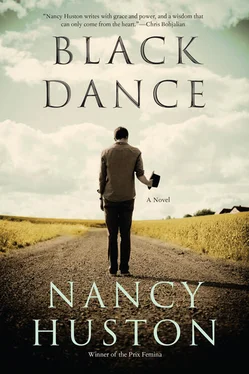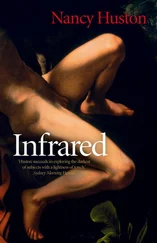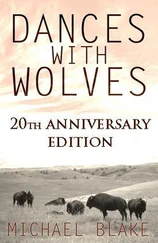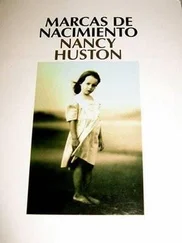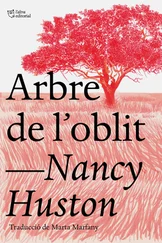In the bedroom: subjective camera, swinging down in a capoeira ginga from ceiling (cracks and cobwebs) to floor (overflowing ashtrays, discarded clothing stiff with filth). The bed hasn’t been made in ages. An upended orange crate serves as a bedside table. On the crate: an envelope.
Milo crosses the room (lightfooted, Indian, his mother’s son). Picks up the envelope. Camera close-up on the clumsy, childish handwriting. Declan’s name and address. . Montreal spelled Muntreal. . Her hand traced these words a mere few days ago. . he’s virtually touching his mother. . Gently, he turns the envelope over. Withdraws the single sheet it contains. Unfolds it. Starts to read. Again we hear Awinita’s voice. . but strange and low and echo-filled, as if from far away.
Hi Mister Clening — Fluid
glad to hear you found your son
Milo refolds the sheet of paper. Slides it back into the envelope. Sets the envelope on the orange crate. Crosses to the door. Turns off the light. Leaves the room. Leaves the building.
IT’S OKAY, ASTUTO. There would have been no point in your actually, physically traveling to an isolated Cree reserve way the hell up north in Waswanipi and meeting Awinita. She was pushing fifty by then, and probably alcoholic and obese. . What would you have said to each other? I mean. . your mother had been talking to you your whole life long. She couldn’t ever leave you.
• • • • •
Neil, 1927
SEVERAL YEARS HAVE passed. We come upon Neil at age thirty-five, sitting at his desk in his new den on the second floor, reading glasses perched on his nose, his red beard now streaked with gray. The bookshelves on the walls around him are empty; at their foot, bearing shipping stickers from Ireland, several crates of books have been opened but not as yet unpacked. Distracted by family noises from downstairs, he is trying desperately to concentrate but getting nowhere.
CUT to the dinner table, later that evening. Present are Marie-Jeanne, hugely pregnant, Neil, hugely despondent, and half a dozen snotty, squirmy little children, up to and including a thin, dark-haired six-year-old girl whose already-bossy attitude designates her as Marie-Thérèse.
“You’re holding your fork the wrong way, Sam,” she says.
“You’re not my mother.”
“Do what she says, Sam.”
“She gets on my nerves.”
“Did you hear what he said, Mommy?”
“Calm down, darling, it’s not that important.”
“Pass the butter.”
“You didn’t say please.”
“Please.”
“Please who?”
“The butter, goddamm it.”
“Watch your tongue!”
“I’m full, Mommy.”
“Mommy, can I leave the table?”
“What do you think, Neil?”
“Far as I’m concerned, they can leave the house.”
“That’s not funny.”
“No, it’s not funny.”
“You can’t be serious.”
“No, I’m not serious. It’s just a line from this new poem I’m trying to write. Some people write Slouches towards Bethlehem to be born , others write Far as I’m concerned they can leave the . .”
“Ouch! Mommy, Antony pinched me!”
“Ask your son if he pinched his sister!”
“Did you pinch your sister, Antony?”
“Not very hard. She kicked me yesterday.”
“That’s too long ago. You can’t pinch her today because she kicked you yesterday; otherwise it’s civil war.”
“What’s civil war, Daddy?”
“Well, you know, back in Ireland. .”
“Oh, no! Not Ireland again!”
“Boo, boo. . not Ireland again!”
“Anyway, you’re not supposed to talk with your mouth full.”
“Marie-Thérèse, it’s not your job to correct your father’s table manners.”
“Why should grown-ups be allowed and not children?”
“Because that’s the way it is. I count on you to set a good example!”
“Yes, Mother.”
“Goody-goody.”
“Now, William. .”
“What’s the matter?”
“Don’t insult your older sister.”
“It’s not an insult, it’s the truth.”
“Well, as your namesake Willie Yeats told me long ago, you’ve got to be careful of the time you choose for truth-telling.”
“Oh, no, not Willie Yeats again! Mommy, I’m tired of Daddy’s old stories about Willie Yeats!”
Seeing red, Neil gets to his feet.
“Oh, yeah? Well. . if I can no longer talk to me own feckin’ family about me own feckin’ friends. .”
And with a great roar of virile rage he overturns the dinner table, sending children squealing like piglets and scattering in all directions. Suddenly a different scream arcs high above the general clamor — Marie-Jeanne’s water has just broken. Close-up on her face, contorted in panic. . and on Neil’s, scowling with shame.
CUT to exterior night, at the icy heart of darkness, two or three in the morning. Marie-Louise, visibly older than when we last saw her, comes out the front door. Neil staggers a bit, exhausted from pacing up and down in front of the house. Bangs his pipe against the porch steps to empty it, then scuffs out the embers in the dirt.
“Well?” he asks the midwife.
“He’s got nice red hair.”
“Ah! A boy!”
“Yes. Gonna make another Anglo outta him?”
“And that’s not all! That’s not all! I plan to make this one my heir .”
“Oh, really? I thought the house and grounds still belonged to your brothers-in-law.”
“No, Marie-Louise, I mean a spiritual heir. That boy in there will inherit my books . He’ll inherit my ideas . He’ll inherit my dreams .”
“And have you found a name for this heir of yours?”
“Declan.”
“Funny name.”
“It means full of goodness .”
“Okay, well anyway, in the meantime you can go make his acquaintance.”
And Marie-Louise — white-haired, white-uniformed, white-capped — moves off into the shadows of the night.
• • • • •
Awinita, January 1952
NOW SIX MONTHS pregnant with Declan’s baby and pumping heroin daily through the bloodstream she shares with it, Awinita hovers and wavers downstairs in the wake of a client. (As always, we are in her body.) The latter — a short, fat, balding sexagenarian who might be a traveling vacuum cleaner salesman on the verge of retirement — does not turn to thank us or wish us a good day but walks straight through the bar and out into the dawn, his step springy with Good riddance (though one would be hard put to say whether the phrase applied to his sperm or to the woman he’s just paid to help relieve him of it).
We hike ourselves up onto a stool and more or less collapse onto the bar, head slumped on folded arms, vaguely expecting Irwin the barman to bring us a coffee as he sometimes does when we’ve been up all night. Today, however, Irwin doesn’t bring coffee. He brings news.
Close-up on his belt buckle as it moves toward us along the bar and comes to a halt a few inches from our nose.
“Deena got hers.”
We sit up straight. As in the first scene, we see our face in the mirror behind the bar. Surrounded by blond-and-black hair, its features are frozen; no question marks light up our eyes.
“I just told Liz and she’s mad as hell. Serves the little bitch right, though. You girls know you’re not s’posed to see your johns on the side. You know it. It’s for your own sake, Jesus Christ. But she couldn’t resist the idea of makin’ some extra dough, so she followed this guy up to his place. After rapin’ her with a broken bottle or somethin’, he strangled her and tossed her out the window. Strokaluck, the cop who found her (he’s a regular here), came and told me, quiet-like, while she was bein’ hauled off to the morgue. Native Female, Unidentified we decided to call her. I can’t be lieve you guys. You, too, Nita. I know you been forkin’ out to that Irish lush o’ yours. Those guys can be dangerous, man. That’s what I’m here for, to protect you, not just to spy on you or take my cut. . You’re not careful, you’ll end up like Deena, a naked corpse in the gutter.”
Читать дальше
